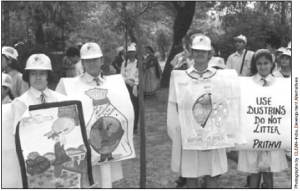India’s Recycling: Challenges and Lessons

Originally appears in the Fall 2005 issue
For millennia in India, conserving, reusing, and recycling have been a way of life. The very first verse of the Isopanisad (one of the Vedic texts of ancient India) can be paraphrased in the following manner: Since everything in the universe is controlled by the Lord, one should take only those things that are necessary, and leave the rest for those for whom it is meant. This simple admonition is the quintessence of conservation.
How was this lesson learned, preserved, and passed on from generation to generation? The peoples of ancient India, having a predominantly oral tradition, came to believe in “simple living and high thinking” as exemplified in the lives of great saints. The great thinkers and philosophers of every generation guided the populace in this quest for a simple life. Even in Hindu mythology, the greatest rulers and divine kings are those who either renounced their kingdoms or gave away all their wealth in order to live by their principles and follow a spiritual path. This they did even at the cost of great hardship to themselves and much self-sacrifice. Stories such as the Ramayana and Mahabharata drive home this point, that material riches do not confer happiness, and that they are in fact often a great hindrance to living a life of peace and harmony with those around us.
This content is restricted to subscribers only.
If you are not yet a subscriber, please consider taking out a subscription here.
If you are an existing subscriber, kindly log in or contact us at info@greenteacher.com for more information.





